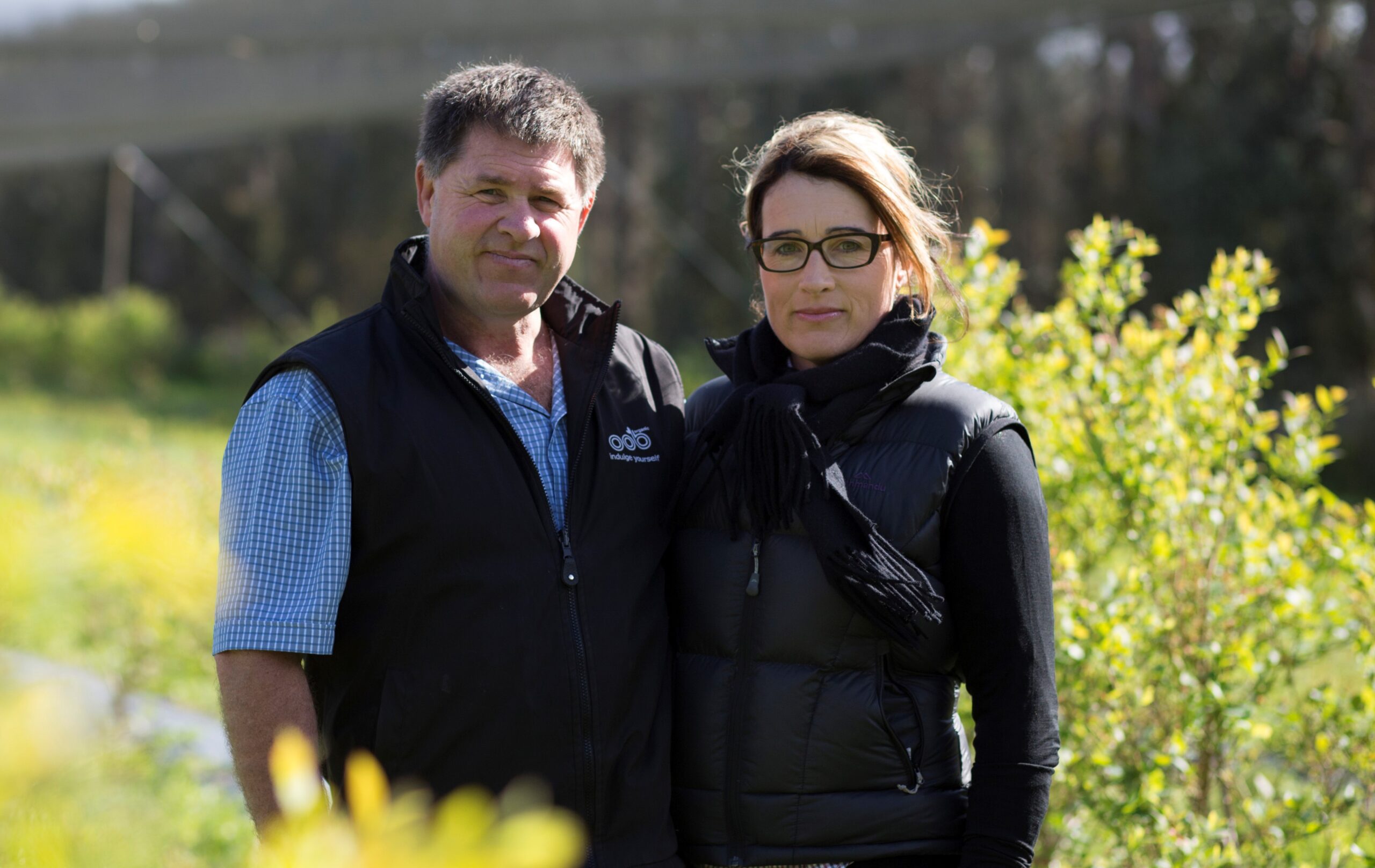Organic frozen fruit exporter Oob has successfully overcome the challenges of marketing its products to international buyers. Catherine Beard shares their lessons.
As the world continues to experience a huge uplift in demand for organic fruit, I picked the brains of Oob CEO Robert Auton to find out how to overcome the challenges of international growth in the organic fruit market.
“It was always our intention to export from day one. Part of our criteria was getting involved in a product that had mass appeal beyond New Zealand. Our research showed blueberries were in high demand internationally and growing in popularity,” explains Robert.
Oob started exporting fresh fruit to the US quite early, and have been exporting to Dubai during the fresh fruit season for the past ten years.
Producing frozen fruit took off when they entered the Australian market in 2012, after approaching Woolworths with an organic berry and ice cream offer. Their consumer base grew massively in a very short period, so the challenge was securing enough product to meet demand. Purchasing organic fruit off other Kiwi growers was no longer enough. They had to search the globe for organic fruit, and Chile came to their aid.
Two years after getting into Woolworths, Coles approached them, followed by Metcash (the independent group of supermarkets). Now in over 3000 stores in Australia, Oob are the dominant organic brand there, and in New Zealand.
“We started exporting frozen fruit and ice cream into Singapore and Malaysia about four years ago,” adds Robert. “Given both countries have ample fruit year-round, I was surprised at how well our fruit is going. But I think being certified organic, and convenient, has made it popular.”
Prediction comes true
Back when they started in 2001, Robert and wife Shannon predicted that organic was going to be a long-term trend.
It’s since gone from a niche market to more mainstream.
“We’ve had challenges along the way,” says Robert. “When you’re growing at 50% there are financial and capability strains. We got through that, and now we’re still growing but able to manage it better with financial modelling.
“We’ve had pressures along the way from adverse exchange rates and the huge uplift in demand for organic fruit over the past three to four years which drove up the price of that commodity significantly.”
Growth in organic orchard planting globally has eased the situation, and their Chile partner has expanded its operation.
Plans for the future include developing more fruit lines. They’ve just introduced organic mango into New Zealand, and Australia will follow soon.
“We still think the organic market will grow 16% by 2020, and there’s a willingness to pay premiums for organic products.”
The smoothie market is also a target. Robert predicts it’s still got significant growth in it.
Given his success in picking the organic trend, I’d say he’s probably right.
Catherine Beard is executive director of ExportNZ. www.exportnz.org.nz This story first appeared in NZBusiness Dec/Jan 2017 issue.
Pictured: Robert and Shannon Auton.
Robert’s top 5 marketing tips
- Always re-visit your modelling. Keep looking at what could happen to your business with changes in commodity prices and exchange rates.
- Hone your negotiating skills with supermarkets; get in at the right level. It’s very difficult to raise your prices when things go against you.
- Build more fat into your pricing models to allow for those contingencies, because you’re always going to have them.
- Brand ambassadors and social media marketing can be more effective than traditional media advertising.
- Attractive packaging is important for telling your story, especially in the food industry. “Having a window in our packaging has helped consumers see what they’re buying. People who weren’t necessarily into organic can see that the fruit quality is high and think ‘This looks pretty good! I’ll buy this even though it’s more expensive.’




